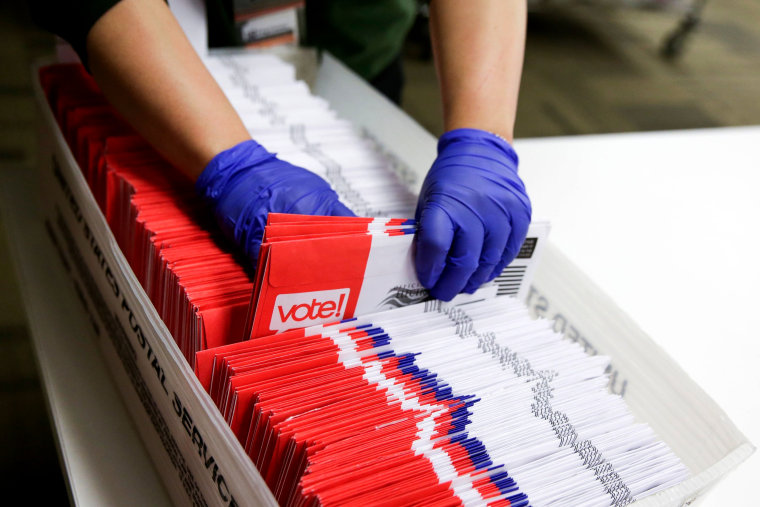After Michigan's secretary of state this week announced plans to send the state's voters an application for an absentee ballot, Donald Trump falsely claimed that the plan is "illegal" -- and then kept going.
In fact, the president tweeted an extortion scheme: either Michigan makes it harder for the state's voters to cast a ballot during a pandemic or he'd take steps to cut off the state's federal support. (When the White House attempted to defend the comments, it didn't go well.)
Yesterday, Trump brought his position into sharper focus -- or at least, he tried to.
"We don't want [Michigan officials] to do mail-in ballots because it's going to lead to total election fraud. So we don't want them to do mail-in ballots. We don't want anyone to do mail-in ballots. Now, if somebody has to mail it in because they're sick or, by the way, because they live in the White House and they have to vote in Florida and they won't be in Florida -- if there's a reason for it, that's okay. If there's a reason. But if there's not -- we don't want -- we don't to take any chances with fraud in our elections."
So to recap, as far as the president is concerned, voting by mail should be prohibited entirely, in every state, because it leads to "total election fraud." Is there any proof of that? No. Has Trump presented any evidence to support the claim? No. But he's convinced that anything that makes voting easier makes his defeat more likely, so he's apparently clinging to a nonsensical theory.
But the president also believes that voting by mail can be "okay," just so long as "there's a reason for it." And this is the important part.
In Trump's model, Americans who are registered to vote in one state, even if they live and work in a different state, have "a reason" to cast their ballots through the mail. Americans who are concerned about a deadly viral pandemic, however, and who'd prefer to cast their ballots from the safety of their own homes, do not have "a reason" to use postal balloting.
There is no scenario in which this makes sense, but since the president has struggled to explain why he should be able to vote by mail, even while insisting that you shouldn't have the same opportunity, this is apparently the best he can do.
In other words, Trump is comfortable saying that voting by mail is acceptable "if there's a reason," but he's less comfortable acknowledging the fine print: he wants to be the one determining the legitimacy of the reason. State officials who have a more sensible set of standards in mind should, evidently, expect the Republican White House to take steps to strip their states of federal aid.
As a practical matter, he's almost certainly spinning his wheels: Trump lacks the unilateral authority to financially punish states whose election systems he doesn't like, and states will continue to administer their own election practices, whether the confused president likes it or not.
A New York Times report added overnight that 11 states have already eased their limits on voting absentee in light of the public-health crisis, and 34 states (plus the District of Columbia) already allow all voters to cast absentee ballots. In 5 of those 34 states -- some red, some blue -- postal balloting is the legal statewide standard.
Michael Waldman, the president of the Brennan Center for Justice at NYU, told the Times, "Every once in a while you get the president of the United States popping up and screaming against vote-by-mail, but states and both political parties are organizing their people for it. It's a bizarre cognitive dissonance."
If recent history has taught us anything, "bizarre cognitive dissonance" is one of the few areas in which Trump excels.

